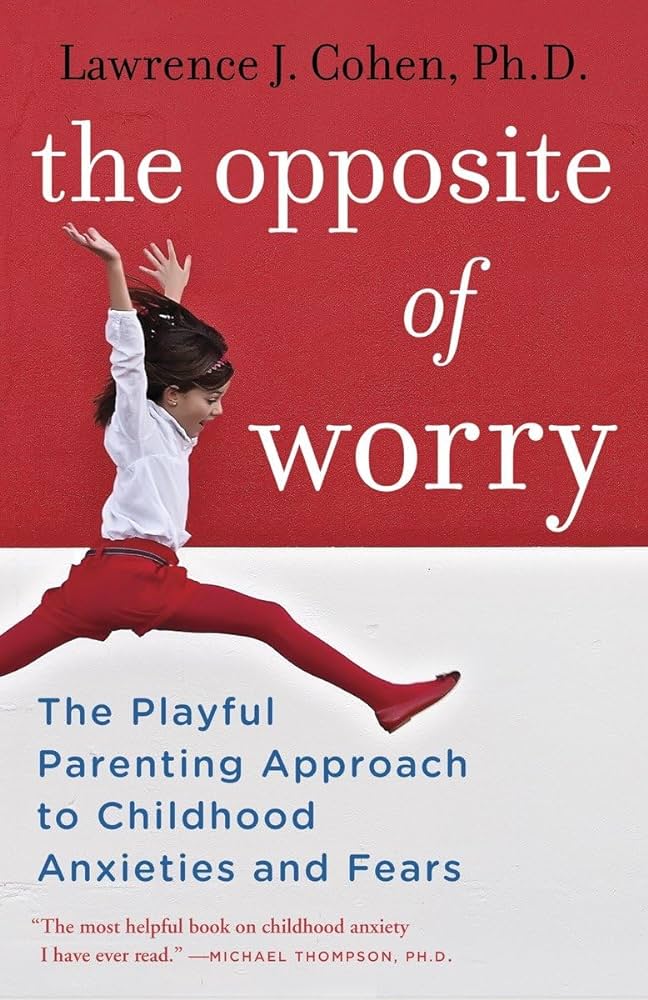
The Opposite of Worry: Understanding and Overcoming Anxiety
Lawrence J. Cohen's book, The Opposite of Worry, offers valuable insights into managing and overcoming anxiety, particularly in children. In this comprehensive review, we'll explore the key themes and strategies presented in the book, providing a thorough understanding of how to apply these concepts in everyday life.
Understanding Anxiety
Anxiety is a common emotional response that can affect individuals of all ages. Cohen emphasizes that understanding the root causes of anxiety is crucial for effective management.
Causes of Anxiety
Anxiety can stem from various sources, including:
- Genetics: A family history of anxiety can increase the likelihood of experiencing it.
- Environment: Stressful environments and traumatic events can trigger anxiety.
- Biological Factors: Imbalances in brain chemistry can contribute to anxiety disorders.
Key Strategies to Combat Anxiety
Cohen's book provides several practical strategies to help individuals and parents manage anxiety.
Playfulness and Connection
One of the core strategies discussed is the importance of playfulness and connection. Cohen suggests that engaging in playful activities can help alleviate anxiety by creating a sense of safety and joy.
Benefits of Playfulness
- Reduces Stress: Playfulness can lower cortisol levels, reducing stress.
- Enhances Bonding: Play strengthens relationships by fostering trust and communication.
- Promotes Resilience: Playful activities teach problem-solving skills and adaptability.
Creating a Safe Environment
Creating a safe and supportive environment is essential for reducing anxiety. Cohen recommends the following steps:
- Establish Routines: Consistent routines provide a sense of security and predictability.
- Encourage Open Communication: Allow children to express their fears and concerns without judgment.
- Model Calm Behavior: Demonstrate coping strategies by staying calm during stressful situations.
Practical Techniques for Managing Anxiety
Cohen introduces several practical techniques that can be used to manage anxiety effectively.
Deep Breathing Exercises
Deep breathing exercises can help reduce anxiety by promoting relaxation. Here is a simple technique:
- Find a Quiet Place: Sit or lie down in a comfortable position.
- Inhale Deeply: Take a slow, deep breath in through your nose, counting to four.
- Exhale Slowly: Breathe out through your mouth, counting to four.
- Repeat: Continue this pattern for a few minutes until you feel calmer.
Mindfulness Practices
Mindfulness involves focusing on the present moment without judgment. Practicing mindfulness can help individuals stay grounded and reduce anxiety.
Simple Mindfulness Exercise
- Sit Comfortably: Find a quiet place and sit in a comfortable position.
- Focus on Your Breath: Pay attention to your breathing, noticing the sensation of air entering and leaving your body.
- Observe Your Thoughts: If your mind wanders, gently bring your focus back to your breath.
Conclusion
The Opposite of Worry by Lawrence J. Cohen provides a comprehensive guide to understanding and managing anxiety. By incorporating playfulness, creating a safe environment, and practicing techniques like deep breathing and mindfulness, individuals can effectively combat anxiety and promote emotional well-being.
For more information and resources, visit our website: https://readreviewtalk.com/ and our blog: https://readreviewtalk.com/blog/.



